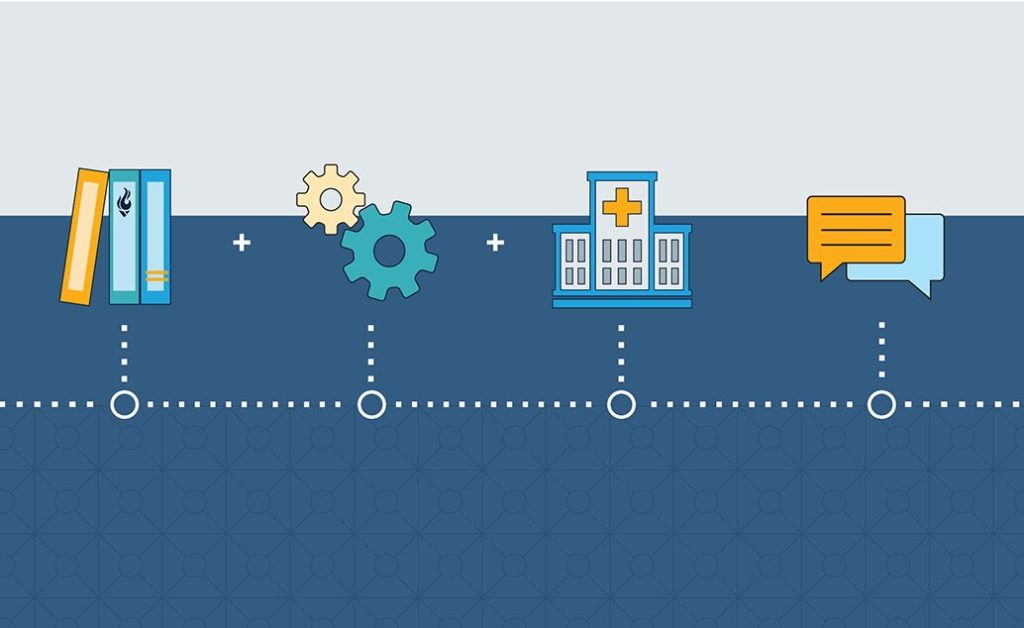
The U.S. Bureau of Labor and Statistics estimates that employment of health educators will grow by 13 percent in the next decade. This growth means opportunity for both healthcare and education to familiarize themselves with the value of health education and what its practitioners can bring to the table.
What does a health educator do?
A health educator is both a health and education professional who promotes health and wellness for individuals and communities. They are equipped to provide clinical knowledge and promote positive health behaviors. Health educators also are experts in disease prevention and transmission, preventative healthcare and the principles of chronic disease management. However, the expertise of health educators is not limited to clinical knowledge. The “educator” side of health educators is just as important.
How does a health educator educate?
According to the Centers for Disease Control and Prevention, successful health educators don’t just provide information. They do so in a way that encourages people to make actual changes for the benefit of their health. But persuading people to change deep-rooted habits isn’t easy. It requires an understanding of effective educational strategies, as well as an awareness of the psychological, social and ethnic context of their community.
Health educators also often serve as individual coaches, working with people one-on-one to promote health and wellness, and leaders of community organizations, building wide-reaching health education curriculum. How they teach will look different depending on their audience.
What can you accomplish as a health educator?
If you’re interested in becoming a health educator, you can be confident you’ll have the opportunity to make a huge difference in many lives. You can work to build educational campaigns with community organizations instead of for them, advocating for health and wellness in vulnerable populations. You can bring lasting change by collecting and analyzing data, using it to make strategic decisions and setting up goals to measure effectiveness. By harnessing your expertise and skills, you can improve the health and quality of life of many people.
Health education is much more than information sharing. It is education, psychology, clinical practice, communication, compassion and advocacy. Few other professions offer more opportunities to make meaningful change. It’s this opportunity to be a change-maker that will attract many professionals into the field of health education in the coming years, bringing health, wellness and agency to the people who need it most.
Make a difference in the health and wellness of your community. Explore American College of Education’s healthcare programs, including our M.Ed. in Health and Wellness Education and Ed.D. in Public Health Education.

